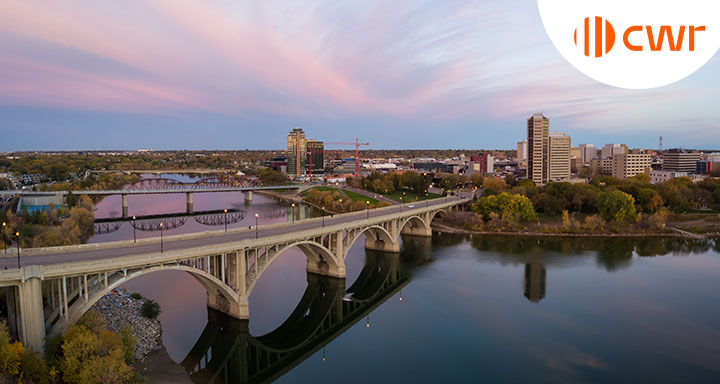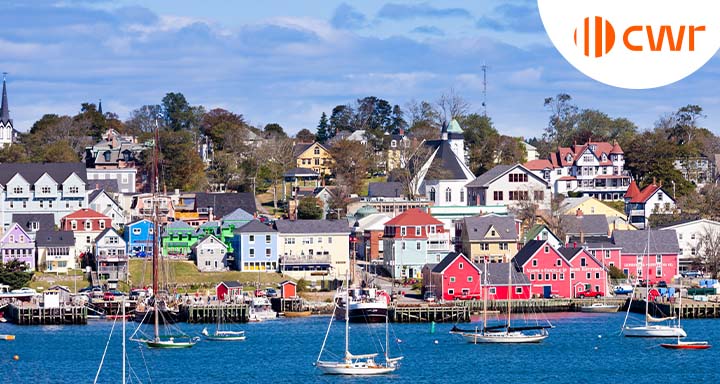Canada is a popular immigration destination because of its diverse cities and wide landscapes. Thousands of individuals from all over the world come to Canada each year in search of a better life, superior healthcare, and a wide range of opportunities. However, acquiring permanent residency (PR) status in Canada can be difficult, and different provinces may have very different requirements. This blog discusses the advantages of emigrating to Canada and the easiest provinces to gain permanent residency status in, as well as the procedures involved.
About Canadian Permanent Residency
With Canadian Permanent Residency, people from all over the world have the fantastic chance to settle down in Canada, take advantage of its excellent healthcare and educational institutions, and integrate into its multicultural society. Getting permanent residence is a big step towards complete absorption into Canadian society and ultimate citizenship.
There are several ways to become a permanent resident of Canada. The country’s immigration laws are mostly focused on the Express Entry program, which is intended to draw in skilled personnel and successfully handle labor shortages. Candidates are assessed by this method on a wide range of criteria, such as their educational background, employment history, professional abilities, and language ability.
Provincial programs like the Quebec Immigration Program and the Provincial Nominee Program (PNP), which act as essential routes to permanent residence, supplement the federal Express Entry system. These initiatives give provinces the authority to propose applicants in accordance with their unique labor needs in the region, guaranteeing a customized immigration strategy that fits each province’s economic objectives and demographic demands.
Eligibility Criteria for Canada Permanent Residency
Using the CRS, a mechanism that assigns points to applicants, the Express Entry system in Canada is a well-liked route to permanent residency. To be eligible for PR through Express Entry, a candidate must meet a minimum CRS score; each province has its own requirements. A candidate’s likelihood for success in Canada is indicated by a number of elements that go into calculating their CRS score.
The degree of flexibility exhibited by applicants for permanent residence in Canada is assessed based on a number of criteria, including the availability of a job offer made in Canada, the presence of a relative who is a citizen or permanent resident of Canada, prior education or employment history in Canada, and the spouse’s qualifications. The CRS relies heavily on age, with those between the ages of 18 and 35 generally scoring higher because of their perceived higher degree of adaptability and longer probable work tenure.
Bachelor’s, master’s, and doctorate degrees are examples of educational achievement that have an impact on CRS scores. These scores indicate an individual’s ability for learning and skill improvement. Work experience is a consideration in CRS ratings, both domestically and internationally. Higher scores indicate skill and prospective economic contribution, and more years of specialized experience contribute to higher scores. For the purpose of obtaining permanent residency in Canada, one must be proficient in either French or English. Immigration authorities use the results of language tests such as the TEF, IELTS, or CELPIP to measure language proficiency and eligibility.
Easiest provinces in Canada to gain permanent residency status
Alberta’s Express Entry Stream
Alberta is a popular location for aspiring immigrants due to its robust educational system and growing employment market. It is a province in western Canada, known for its energetic cities like Calgary and Edmonton. The province chooses candidates from the federal Express Entry pool for provincial nomination through the Alberta Express Entry Stream. The advantage of this stream is that candidates with CRS scores as low as 300 can be considered, which raises the possibility of winning an Alberta nomination.
Scoring above 300 in the CRS doesn’t guarantee acceptance into the Alberta Express Entry Stream. While AINP discloses the lowest CRS score in each round, other selection criteria remain ambiguous. Factors such as having a qualifying relative in Alberta, a job offer or work experience in the province, or graduating from a Canadian post-secondary institution may increase chances of an invitation. In alignment with the federal Express Entry framework, Alberta offers an additional 600 CRS points for provincial nomination, ensuring nominees receive an ITA for permanent residency in the subsequent Express Entry draw.
Saskatchewan
Saskatchewan has been a popular destination for immigrants as a result of its strong economic growth and plentiful job opportunities, making it one of the easiest provinces to immigrate to in Canada. The province’s International Skilled Worker Provincial Nominee Program (PNP) provides two main routes for skilled workers: the Occupations In-Demand and Express Entry streams.
These PNP streams are purposefully designed to draw people with experience in fields that are in great demand in Saskatchewan. As a result, the province earns distinction as one of the easiest places to apply for Canadian permanent residence in 2024.
Through the Expression of Interest (EOI) system, candidates who wish to immigrate to Saskatchewan through these streams must go through a selection procedure. Using this process enables the province to choose applicants by hand who have the training and expertise required to make a meaningful contribution to Saskatchewan’s economy and labor market.
Saskatchewan provides the Express Entry stream to people who qualify for the federal Express Entry system, which guarantees faster processing of their applications for permanent residency. For eligible applicants, this simplified procedure improves the effectiveness of the immigration process.
Furthermore, those who don’t fit the requirements for the Express Entry profile can still apply for permanent residence under the Saskatchewan Occupations In-Demand stream. For skilled workers who meet the requirements and have the experience that Saskatchewan businesses are looking for, this pathway offers an alternate path.
Ontario
In 2024, Ontario will continue to be the most popular province for immigrants and one of the easiest to get permanent status in Canada. Even though Ontario already has one of the highest quotas of any Canadian province, it is aggressively looking to welcome even more newcomers with a considerable quota allocated to expediting the immigration process through Provincial Nominee Program (PNP) streams. It prominently positions itself as one of the top provinces to settle in 2024.
For those who live outside of Canada, Ontario’s Human Capital Priorities stream offers an attractive route. This stream gives preference to qualified individuals with the necessary skills to fill jobs in the province. This stream, which uses the federal Express Entry system, focuses on applicants who, as long as they keep their Express Entry profile active, have a CRS score of 400 points or above.
Also, skilled professionals who speak French and are in the Express Entry pool are welcome to apply for Ontario’s PNP stream. For those who speak French at an intermediate to advanced level, this choice is quite beneficial.
Prince Edward Island
As of 2024, Prince Edward Island is one of the easiest jurisdictions in which to apply for permanent residence. A candidate who receives a nomination from Prince Edward Island might considerably increase their chances of receiving an ITA from the federal government. Federal Skilled Trades Program, or Canadian Experience Class, in order to be eligible for the PEI Express Entry stream.
To join the candidate pool, prospective applicants must first construct an Express Entry profile. They also need to show that they have worked full-time for at least nine months with a PEI employer who supports them. Candidates should also make sure that their work permit has at least four months left on it, especially if they have a Post-Graduation Work Permit (PGWP) or a Spousal Open Work Permit.
Nova Scotia
Nova Scotia is an attractive location for many because of its inexpensive cost of living, close proximity to the seaside, and laid-back lifestyle. It sits on Canada’s eastern coast along the Atlantic seaside.
Moreover, the Labor Market Priorities stream in Nova Scotia is well known for selecting applicants straight from the Express Entry pool. In 2024, this stream will help Nova Scotia maintain its standing as one of the easiest provinces to get permanent residency in Canada. Interestingly, this stream extends invitations to profiles that have never had any prior connection to the province, thereby simplifying the immigration procedure.
Although the province does not release the particular jobs or requirements it is looking for prior to its intake rounds, it often sends out invites to applicants even when they do not have any prior ties. To be eligible for nomination, prospective nominees must have an active Express Entry profile and indicate their interest in the province.
Fastest and Easiest Way to Get PR in Canada
The fastest and Easiest way to get Canadian PR are given below:
- Explore Provincial Nominee Programs (PNPs): Research and identify provinces with PNPs aligned with your qualifications and occupation demand.
- Assess Eligibility Criteria: Review eligibility requirements for PNPs and federal immigration programs such as Express Entry.
- Create Express Entry Profile: Prepare and submit an Express Entry profile, highlighting your skills, work experience, and education.
- Apply for Provincial Nomination: If eligible, apply for nomination through the PNP of your chosen province, which can significantly boost your CRS score.
- Complete Documentation: Gather and submit all required documents accurately and promptly to avoid delays in the application process.
- Enhance Language Skills: Improve language proficiency in English or French, as higher language scores can enhance your eligibility and CRS score.
- Gain Canadian Work Experience: Secure employment in Canada through temporary work permits or internship programs to gain valuable Canadian work experience.
- Stay Informed: Stay updated with immigration policies, program changes, and intake periods to maximize your chances of success.
- Seek Professional Advice: Consider consulting immigration experts or lawyers for guidance and assistance throughout the PR application process.
- Prepare for Settlement: Plan for settlement in Canada by researching housing options, healthcare, education, and other essential aspects to ensure a smooth transition upon arrival.
Conclusion
Ultimately, looking at the Canadian provinces for the easiest PR gives hopeful immigrants the kind of hope they need to have a future in Canada. Entrepreneurs, investors, skilled workers, and recent graduates can apply for a provincial nomination that would help their immigration application move faster Aggregate rating Candidates can ensure a smoother transition to permanent residency in Canada by using provincial nominee programs, federal immigration streams, and strategic planning to accelerate their path towards a brighter future in a province that they have specifically chosen.




